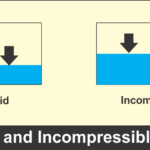Thermodynamics
How Refrigerator Works ?- Easiest Explanation
What is a Refrigerator? A refrigerator commonly called as fridge is defined as a machine which is used to maintain or...
Read MoreBoyle’s Law – Statement, Formula Example and Graph
What is Boyle’s Law? This law was established by Robert Boyle in 1662. At constant temperature, the absolute pressure of a...
Read MoreGas Laws – Boyle’s, Charles, Gay Lussac, Avogadro and Ideal Gas Law
What is a Perfect Gas? A perfect gas or an ideal gas is a state of a substance, whose evaporation from...
Read MoreWhat is Adiabatic Process – Explanation
Adiabatic process is a process in which there is no exchange of heat takes place from the working substance to the...
Read MoreThermodynamic System – Types of Thermodynamic System
What is Thermodynamic System? A thermodynamic system is defined as a quantity of matter or a region in space which is...
Read MoreWhat is Use of Heat Conduction Equations?
Heat conduction equation is defined as the differential equation through which we can define the conduction in any shape of body...
Read MoreSome Important Terms Used in Heat Hransfer
The definitions or terms used in science are the language of science. As we learn alphabets to speak or understand the...
Read MoreWhat is Heat Transfer?
To know about heat transfer first we must know about energy. Energy is the ability to do work or produce power to...
Read MoreBasic Introduction About Heat Transfer
We all know that heat is the form of energy and it can be transfer from one body to another by...
Read MoreWhat is a Refrigerator? A refrigerator commonly called as fridge is defined as a machine which is used to maintain or keep the food materials at low temperature and prevents their spoilage. The food materials kept at low temperature spoils or degrade gradually and can remain fresh for longer time.…
What is Boyle’s Law? This law was established by Robert Boyle in 1662. At constant temperature, the absolute pressure of a given mass of a perfect gas is inversely proportional to its volume. Have you understand something from this? If not than let’s we understand what this statement implies. It…
What is a Perfect Gas? A perfect gas or an ideal gas is a state of a substance, whose evaporation from the liquid state is completed and which obeys all the gas laws strictly under all conditions of pressure and temperature. In reality there is no ideal or perfect gas…
Adiabatic process is a process in which there is no exchange of heat takes place from the working substance to the surrounding during its expansion or compression. This is possible when the working system is made thermally insulated, that is no heat can leave or enters it during the process.…
What is Thermodynamic System? A thermodynamic system is defined as a quantity of matter or a region in space which is selected for the study. The mass or region outside the system is called surroundings. The real or imaginary surfaces which separates the system and surroundings is called boundary. The…
Heat conduction equation is defined as the differential equation through which we can define the conduction in any shape of body and we can calculate the temperature at any point in a medium in any situation like steady flow, transient flow, one dimension flow, three dimension flow etc. It is…
The definitions or terms used in science are the language of science. As we learn alphabets to speak or understand the English language in the same way we should need to learn those terms which are necessary to understand the scientific language. So some important definitions or terms that we…
To know about heat transfer first we must know about energy. Energy is the ability to do work or produce power to do work . Energy can neither be created nor be destroyed but it can change from one from to another. Energy can exist in various forms like mechanical energy,…
We all know that heat is the form of energy and it can be transfer from one body to another by virtue of temperature difference. The branch of science in which we study about transfer of heat is known as heat transfer. Why should we know about heat transfer? Heat…
















